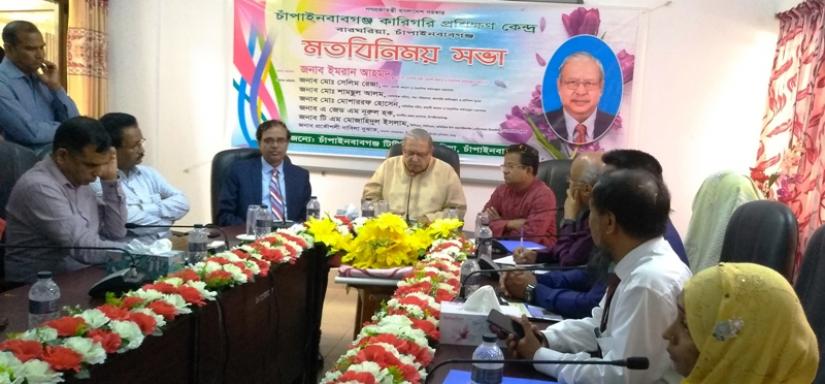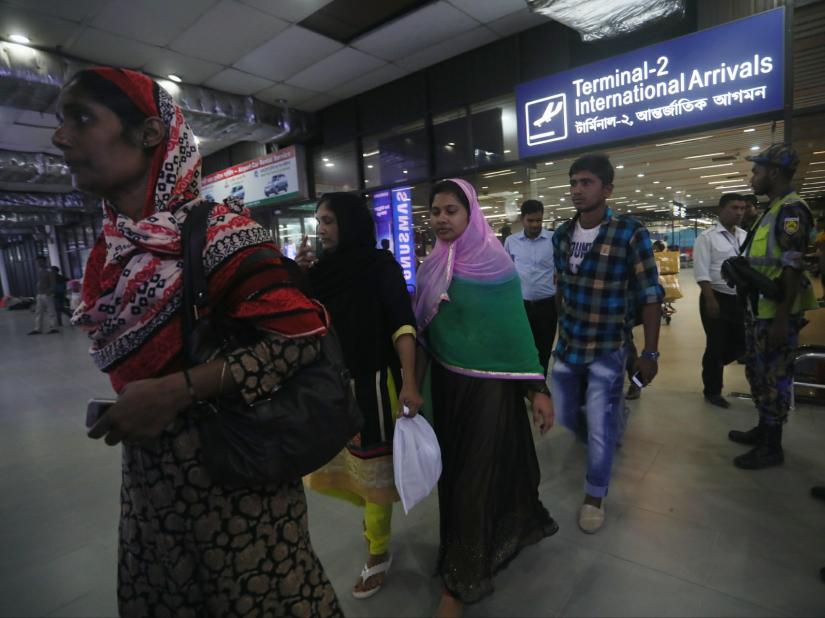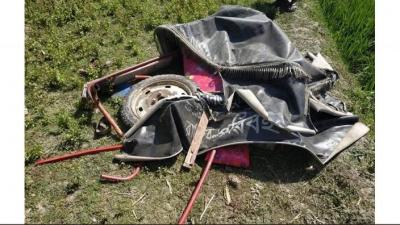 The government will decide on steps to deal with the plight of Bangladeshi female workers in Saudi Arabia after talks with the kingdom later this month, says Expatriate Welfare and Overseas Employment Minister Imran Ahmed.
The government will decide on steps to deal with the plight of Bangladeshi female workers in Saudi Arabia after talks with the kingdom later this month, says Expatriate Welfare and Overseas Employment Minister Imran Ahmed.
Speaking at an event in Chapainawabganj on Saturday (Nov 16), he said a series of talks with the Middle-eastern kingdom were slated for Nov 26 and Nov 27.
“We are worried about the female workers [employed abroad],” he said at the inauguration of an outsourcing training programme.
Imran said the government will initiate steps ensuring female migrant workers' safety, before adding Dhaka won't agree with Riyadh's condition of not allowing a country to send migrant workers if it stops sending female migrants.
Speaking of Sumi Akter, whose video seeking help to escape from her employer’s abuse went viral on social media, Imran said they would let Saudi authorities know once they receive a complaint.
Sumi, who went to Saudi Arabia on May 30 to work as a domestic help only to return five months later on Nov 15.
Sumi made headlines after a video of her went viral on social media.
In the video, she said she was being tortured by her employer and had been “lured to Saudi Arabia with the promise of a good job,” and asked for help.  Saudi Arabia is the largest manpower export destination for Bangladesh with nearly one-fourth of its expatriate workforce working in the kingdom.
Saudi Arabia is the largest manpower export destination for Bangladesh with nearly one-fourth of its expatriate workforce working in the kingdom.
As the number of allegations of Bangladeshi female workers suffering physical and sexual abuse at the hands of their employers in Saudi Arabia continues to rise, several opposition lawmakers on Nov 12 demanded in parliament that the government stop sending the country’s women to work in the Middle Eastern country.
The Ministry of Expatriates' Welfare and Overseas Employment, earlier in September, found that 35% of the returning female workers among a group of 111, were victims of sexual and physical abuse, while 43% received wages irregularly.
The report identified 11 fundamental reasons why Bangladeshi migrant women fled their workplace, which include physical and sexual abuse, inadequate food, no leave, and irregular salaries.
 Country
Country
30765 hour(s) 3 minute(s) ago ;
Afternoon 03:57 ; Saturday ; Apr 20, 2024
Steps on female migrant workers' plight after talks with Saudis: Govt
Send
Chapainawabganj Correspondent
Published : 17:17, Nov 16, 2019 | Updated : 17:20, Nov 16, 2019
Published : 17:17, Nov 16, 2019 | Updated : 17:20, Nov 16, 2019
0 ...0 ...
/hb/zmi/
Topics: Top Stories
- KOICA donates medical supplies to BSMMU
- 5 more flights to take back British nationals to London
- Covid19: Rajarbagh, Mohammadpur worst affected
- Momen joins UN solidarity song over COVID-19 combat
- Covid-19: OIC to hold special meeting
- WFP begins food distribution in Cox’s Bazar
- WFP begins food distribution in Cox’s Bazar
- 290 return home to Australia
- Third charter flight for US citizens to return home
- Dhaka proposes to postpone D8 Summit
Unauthorized use of news, image, information, etc published by Bangla Tribune is punishable by copyright law. Appropriate legal steps will be taken by the management against any person or body that infringes those laws.
Bangla Tribune is one of the most revered online newspapers in Bangladesh, due to its reputation of neutral coverage and incisive analysis.
F R Tower, 8/C Panthapath, Shukrabad, Dhaka-1207 | Phone: 58151324; 58151326, Fax: 58151329 | Mob: 01730794527, 01730794528






